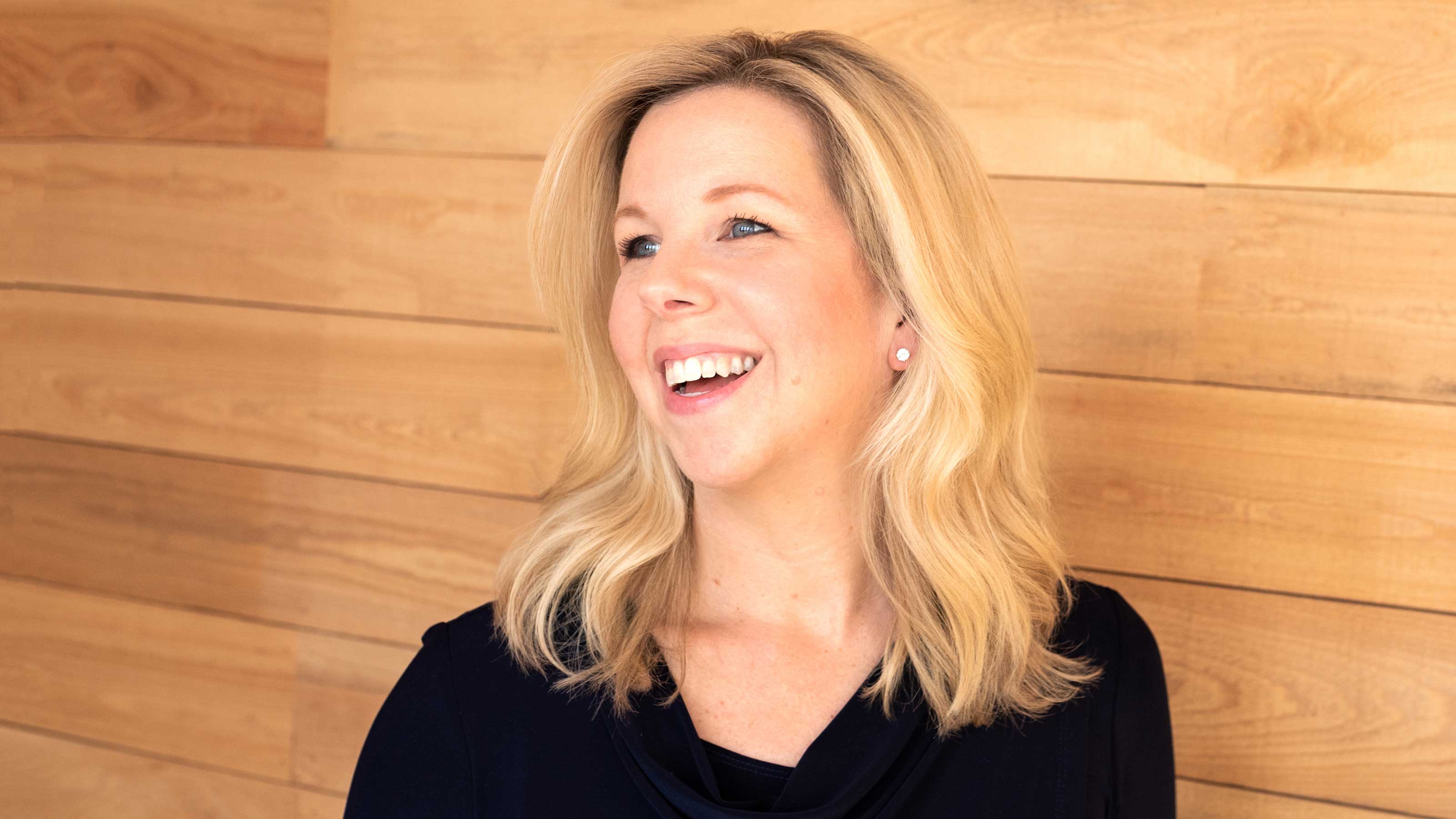Why You Should Have an Estate Plan
Hosts Ryan Ermey and Sandra Block discuss why estate plans aren't just for the super rich with estate lawyer (and Ryan's sister) Lindsay Ermey. Also, the duo tackles the latest moves in the broker price wars, as well as the Yahoo data breach settlement.
Profit and prosper with the best of Kiplinger's advice on investing, taxes, retirement, personal finance and much more. Delivered daily. Enter your email in the box and click Sign Me Up.
You are now subscribed
Your newsletter sign-up was successful
Want to add more newsletters?

Delivered daily
Kiplinger Today
Profit and prosper with the best of Kiplinger's advice on investing, taxes, retirement, personal finance and much more delivered daily. Smart money moves start here.

Sent five days a week
Kiplinger A Step Ahead
Get practical help to make better financial decisions in your everyday life, from spending to savings on top deals.

Delivered daily
Kiplinger Closing Bell
Get today's biggest financial and investing headlines delivered to your inbox every day the U.S. stock market is open.

Sent twice a week
Kiplinger Adviser Intel
Financial pros across the country share best practices and fresh tactics to preserve and grow your wealth.

Delivered weekly
Kiplinger Tax Tips
Trim your federal and state tax bills with practical tax-planning and tax-cutting strategies.

Sent twice a week
Kiplinger Retirement Tips
Your twice-a-week guide to planning and enjoying a financially secure and richly rewarding retirement

Sent bimonthly.
Kiplinger Adviser Angle
Insights for advisers, wealth managers and other financial professionals.

Sent twice a week
Kiplinger Investing Weekly
Your twice-a-week roundup of promising stocks, funds, companies and industries you should consider, ones you should avoid, and why.

Sent weekly for six weeks
Kiplinger Invest for Retirement
Your step-by-step six-part series on how to invest for retirement, from devising a successful strategy to exactly which investments to choose.
Ryan Ermey: Just because you don't live on an estate doesn't mean you shouldn't have an estate plan. Luckily, we didn't have to look very far to find an expert on this matter. Lindsey Ermey, an estate lawyer and my big sister, tells us what your plan should include in our main segment.
- Episode Length: 00:34:22
- Links and resources mentioned in this episode
- SUBSCRIBE: Apple Google Play Spotify Overcast RSS
Ryan Ermey: On today's show, I break down the latest movements in the ongoing brokerage price wars, and a round of Deal or No Deal centers around settlement payments and hair loss drugs. That's all ahead on this episode of Your Money's Worth. Stick around.
Ryan Ermey: Welcome to Your Money's Worth. I'm Kiplinger's associate editor Ryan Ermey, joined once again by senior editor Sandy Block, who is back from what I hope was a lovely vacation.
From just $107.88 $24.99 for Kiplinger Personal Finance
Become a smarter, better informed investor. Subscribe from just $107.88 $24.99, plus get up to 4 Special Issues

Sign up for Kiplinger’s Free Newsletters
Profit and prosper with the best of expert advice on investing, taxes, retirement, personal finance and more - straight to your e-mail.
Profit and prosper with the best of expert advice - straight to your e-mail.
Sandy Block: Back from vacay, Ryan.
Ryan Ermey: So, while you were gone, the brokerage price wars have escalated once again, and in case the good listeners hadn't had enough of my broker coverage-
Sandy Block: Impossible.
Ryan Ermey: ... they're about to get more. So, what happened? Schwab kicked off this latest salvo, if you want to call it that, lowering commissions on stock and ETF trades from $4.95 cents to zero-
Sandy Block: Zero.
Ryan Ermey: ... and option trades now have a zero dollar base rate but it's still 65 cents per contract. So, if you want to have a trade that involves multiple options, they call it a multi-leg option trade, you're going to still be paying per contract, but still relatively cheap.
Ryan Ermey: TD Ameritrade, E-Trade, and eventually Fidelity, all followed suit, offering the exact same deal on stock ETF and option trading. Ally Invest and TradeStation rolled this out as well, although with a 50 cent per option contract deal instead of 65 cents. It should be noted that Interactive Brokers actually did this a couple of days earlier. They announced IBKR Lite, which comes with free stock and ETF trading, and they're really not even the first.
Ryan Ermey: Robinhood, which we've talked about before, has had a no commissions first trade and even, Merrill Edge, you got a certain amount of free trades depending on how much assets you had between accounts at the brokerage and at Bank of America.
Ryan Ermey: But Schwab really seems to have triggered this latest move.
Sandy Block: And, I don't know what this says about me, Ryan, but we actually talked about this. So, I talked about this with some friends while I was on vacation, which, I'm sorry-
Ryan Ermey: Dedicated to the job.
Sandy Block: Yeah. Just... 24/7. What can I say? But, the question that came up was how? These are not charitable organizations.
Ryan Ermey: That's right.
Sandy Block: How are they, if they're basically letting you trade for free, how are they making money?
Ryan Ermey: So, right. There's a couple facets to that question and part of it is, why do this at all? And, it's part of a value proposition. They want to increase their market share, they want to get more people in the door, so that they can sell you some of their services that cost money, such as maybe advisory services, banking services, estate management, we'll which talk about very, very shortly. So, that's part of it.
Ryan Ermey: The other thing is that they're going to continue making money in some of the ways that they already make money. One of them is selling order flow. So, what the deal is, they promise certain, what are called market makers, that they'll route investor orders through their system, and for that they collect money. It's this very opaque process but it is thought to cost investors a little bit of money on the trade.
Ryan Ermey: The other way that a lot of these brokerages make money is basically like a bank. If you hold cash in an account and, say if you're at Schwab, Schwab makes a lot of money on their cash accounts and if you have a robo account at Schwab, they require you to hold a certain amount of your assets in cash, depending on the aggressiveness or conservativeness, as it were, of your portfolio.
Ryan Ermey: They are going to earn a certain interest rate on that money, on their cash reserves-
Sandy Block: Which is, they're not paying you a good interest rate from that money.
Ryan Ermey: Correct. They are going to be paying you a lesser rate and taking the rest off the top. So, it then gets into the question of what's it going to look like? For Schwab, only about 8% of their revenues in 2018 came from commissions. So, that doesn't look like it's going to take too big a chunk out of them. For Ally, which operates primarily as a bank, less than 4% of total revenue.
Ryan Ermey: So, for firms like that, it's not a big sacrifice. For TD who, a much bigger chunk came from their commissions, they're going to have to find other ways to make money. But, on the whole we generally think that this is good for investors.
Sandy Block: It sounds like it, and I guess the question I would ask is, if you are paying to trade, should you be rethinking which brokerage firm you're using, since so many well-known, big firms, they're doing this for free.
Ryan Ermey: It depends what kind of services you have now and how much you like them. It could be that you're investing somewhere that charges commissions for trading, but you trade very infrequently, which is something that we suggest investors do anyway. And maybe, you really like the advisory services, or estate planning, or whatever service that you're getting at the broker that you're already with.
Ryan Ermey: So, it comes down to cost. I mean, we all know that cost is a major determinant of investing outcomes. And, for someone with small account balances, this is a better deal, right? Because a particular trade, it's a matter of having 1% of whatever you bought taken out for fees, or if you're some super-high net worth person, having a fraction of a percent taken
Ryan Ermey: So is it worth it, the switch? It depends how much you like your services. The classic word of caution here is just because trading is now easier because it's free doesn't mean that you should be constantly trading in and out of positions.
Sandy Block: Right? Don't go crazy, people.
Ryan Ermey: Right. The time-honored advice is buy, hold for the long term, allow your returns to compound, don't be trading in and out of positions. Certainly not because of the way that the market is moving, and you should be fine. And, if you stick to the plan, if you stick to your knitting, as so many investment professionals I speak with like to say, it's going to be a good deal for you. You're going to be paying less, and anytime you're paying less it's a good deal for investors.
Sandy Block: So, Ryan, can readers expect to read more about this in the future?
Ryan Ermey: Yes, as far as I know there's been some shifting sands with this upcoming December issue of Kiplinger's, but I believe I will have a breakdown of all of the goings on in the brokerage price wars, and what it means for investors, what it means for the brokerages, and what it means for investors in the actual companies in questions.
Sandy Block: There you go.
Ryan Ermey: You may or may not need a will, but that's far from the only component of an estate plan that you should consider. My sister Lindsey gives you the scoop next.
Ryan Ermey: We are back, and we are here with a very special guest today. She is an estate lawyer, a partner in the private client services group at Philadelphia law firm Ballard Spahr and my big sister Lindsay Ermey. Welcome to the show, Linds.
Lindsay Ermey: Thanks for having me, Ryan and Sandy.
Ryan Ermey: So, it is estate planning month, so I'm sure you're taking some time out of your busy schedule. Parties, brunches, fiestas-
Sandy Block: Parade.
Ryan Ermey: ... whatever they have at estate law firms during this most hallowed month. So, we're talking estate planning in honor of estate planning month. And, a good place to start, maybe, Sandy is married but doesn't have kids. I'm, as you know, young and single. Do either of us really need an estate plan?
Lindsay Ermey: Look, I'm going to give you the most lawyerly answer ever, which is, it depends.
Ryan Ermey: For sure.
Lindsay Ermey: Well, so when we talk about an estate plan, we're generally thinking of three or four different kinds of documents. A will, perhaps a revocable trust, or living trust, a financial power of attorney, and a healthcare power of attorney, and/or living will.
Lindsay Ermey: And, for that full suite of documents, the question for each is, do you need it, or do you like the fault provisions that the state where you live imposes if you don't have it?
Lindsay Ermey: So, let's take the will. And so, I should pause here and say, since this all depends on what state you live in and what your personal circumstances are, to really figure this out you should talk to an estate planning lawyer-
Ryan Ermey: Yes.
Lindsay Ermey: ... and really go through it with them. But, so for a will, if you die without a will, your estate or, if you happen to live in the District of Columbia-
Ryan Ermey: Which I do.
Lindsay Ermey: ... your non-state government. Yes, you do. Has what's called an intestacy statute. It's a statute that says, what happens to your assets when you die if you don't have a will? And, it's really the state's best guess at what most people would want to have happen to their assets when they die, if they haven't said anything.
Lindsay Ermey: Again, this varies state to state, but in general, if you have a spouse or kids, the state assumes you want some to go to your spouse and some to your kids. Or, if you have no kids, but you have a spouse all to the spouse. Then, if you have neither of those, up to your parents, If your parents aren't living, over to your beloved sibling, or, if your siblings are dead, to your nieces and nephews, and so on and so forth.
Lindsay Ermey: Generally, at the end, if you and all of your extended family die in a common accident, let's say, your assets do what's called escheate to the state, they go back to the state. So, in my case, if none of my descendants are living and siblings, spouse, everybody, it goes back to the great Commonwealth of Pennsylvania, and they use it for general government purposes.
Lindsay Ermey: So, whether you need a will, it depends on if you like what your state has chosen or not. And, I would say there are some situations where you definitely do need a will. One is where there's a really good chance that your estate is going to pass to minor children, because as we'll talk about in a little while, it is a real pain in the rear, because minors can't accept, they can't hold assets in their own names. Somebody has to hold them as a fiduciary for them.
Lindsay Ermey: And, if you have a will, you can set up what's called the retention trust, essentially a little trust to hold the assets until they're old enough to get them themselves. And, you name a trustee. This makes life for them. I mean, you'll be dead, life for the children much easier because nobody has to name a guardian or conservator for them, and go through the court proceeding for that to happen.
Lindsay Ermey: Another really important reason to have a will is if you want to benefit a charity, you want to benefit certain family members over others, like your sister, and particularly if you don't want all your assets to go to the state if your family dies out.
Lindsay Ermey: So, those are pretty good reasons. But for some people who say, "I just want everything to go to my surviving spouse and if we're both dead, I don't care what happens to my assets." Then, look. Maybe not.
Sandy Block: I know, Lindsay, that oftentimes, in my experience, what motivates people to get a will is that they do have children and somebody has told them, as you mentioned, the importance of naming a guardian because that's really not something you want the court to decide. Who will bring up your children is a very important decision. And, I would think most people who have children would, would want to have some discretion there.
Lindsay Ermey: That's right. Well, so the naming of the guardian of the person is certainly an important thing that you do in a will. It's typically not binding. The naming of a guardian has to be in the child's best interest. So, if the person that you name has subsequently lost their marbles between now and when you appoint them and when you die, the court will step in and name someone else. But, certainly naming somebody to be the trustee, or the financial guardian is equally as important.
Ryan Ermey: Are there any estate documents that you just would blanket recommend for just about everyone?
Lindsay Ermey: Yeah. Well, so the other two that I mentioned at the top of that last question are the ones that I think I would definitely recommend. So, the two are the financial power of attorney, and the healthcare power of attorney, and living will. Some states have a single form for the health care power of attorney and living will, and I tend to view them as one thing.
Lindsay Ermey: So, for the financial power of attorney, like we were just talking about, if you don't have one and you become incapacitated, so everything from you're temporarily unconscious to you have full-on dementia, the default rule is that your loved ones have to go and get a guardianship or conservatorship, the name depends on what state you're in, which is a court proceeding in which it is proved that you are incapacitated, that you can't handle your own affairs.
Lindsay Ermey: And then, it's subjects all of your assets to ongoing court supervision. So, every time your guardian or conservator wants to spend money from the principal of your estate, they want to buy you a new house, they want to ante up and spend a little more on healthcare expenses, et cetera, they have to get court approval to do that.
Lindsay Ermey: And, I think that's what is technically known as a complete pain in the rear.
Sandy Block: And, expensive as well.
Lindsay Ermey: Expensive. It's a hassle. To avoid that, you should get... Everyone, in my opinion, should get a financial power of attorney. This is a document where you name an individual or individuals to act as your agent. They have the power, essentially, to be you for all purposes except your healthcare decisions. So, they can sign your checks, they can sell your house, they can make investments, they can make gifts, transfers, subject to some limitations, and it's a really flexible document.
Lindsay Ermey: There's no court supervision, which is really helpful, and you can name successors so if you name your big sister, and then, I'm unable to act, and then you want your nephew, God forbid, or somebody who's greater than age nine, you could name a succession of people, so that you don't have to keep going back and saying, "Okay. Hey court this guardians done. Can I get another one?"
Ryan Ermey: Yeah, I mean that'll be real helpful when, right after we throw mom and dad in the home. I told them to pack their toothbrush.
Lindsay Ermey: I am not participating in that. One thing I want to also caution your listeners against is the idea of, sometimes people want to create a financial power of attorney and have it be a springing power, something that only becomes effective once they are actually incapacitated.
Lindsay Ermey: This tends to be, on a practical level, a pretty bad idea, because it sounds good, right? Like, "Oh, I'm going to give this person a ton of power over my assets, but only if I really can't do it."
Ryan Ermey: Right.
Lindsay Ermey: It turns out that, in this day and age, it's really hard to get a doctor to say, "Yes, that person is absolutely incapacitated." Right? And, as I'm sure you guys have experienced, when someone is descending into dementia, they have periods where they're completely there. They're totally lucid, completely able to understand everything, and then, periods whether or not. And, when you're in that in between time, to have a power of attorney that you can't use because they're not completely incapacitated, is really frustrating.
Sandy Block: And, I can imagine doctors would be reluctant because the power of attorney can be abused, and they wouldn't want somebody coming in and saying, "I want to take over because dad or grandpa isn't making right decisions." So, I can certainly see... But, isn't that also a point, Lindsay, that you have to be careful about who you give this authority to because it does give them a lot of leeway to manage your money?
Lindsay Ermey: Absolutely. It is a really, really powerful document. You should not appoint anybody but somebody you trust absolutely, implicitly. Other ways to manage it are to have it be currently effective, but to hold the power somewhere, either at your lawyers office, or at your house in a file cabinet, where they can be found and accessed if needed, but not to have them out there floating around.
Sandy Block: Yeah.
Lindsay Ermey: It would mean that if somebody really needed to do something for you, they might call your lawyer, or they might look around your house and go, "Oh, here's that power of attorney." But, not that they just have it just whenever they feel like using
Ryan Ermey: So, when you get into these estate planning questions, there are so, so many facets. One last thing that I wanted to ask about. What would you say is the one biggest thing that people screw up when it comes to their estate plan? What really trips people up?
Lindsay Ermey: Oh, man. Well, so I would say it is beneficiary designation and, relatedly, transfer on death, pay on death provisions.
Ryan Ermey: Okay.
Lindsay Ermey: So, if you set up your estate plan with your lawyer and you are going to benefit your, let's just say, your young niece and nephew, and you've got everything pouring into trust for them, but over on the side you have a pay on death account that you have directed at your parents, and you have a retirement account that you pay to your niece and nephew outright, and you have life insurance for which you've designated your sister.
Ryan Ermey: Sure.
Lindsay Ermey: At your death, what's going to happen is that the transfer on death account that goes out of your estate and over to your parents, without ever passing into your will. You have life insurance money that's passing to your sister, and you have retirement benefits that are passing outright to the niece and nephew, but not into the trust you created for them.
Lindsay Ermey: So, the problem is that you can direct anything away from your will using its beneficiary designation, so that the best laid plan doesn't actually have any assets that flow into it.
Ryan Ermey: Oh, I see.
Lindsay Ermey: So, the best advice I can give is to think carefully about this with your estate planning lawyer, and to make sure that when they give you the advice about what your beneficiary designation should be, that you studiously, and dutifully, implement that.
Lindsay Ermey: It can be a huge pain. Some providers make it really hard. You jump through hoops to get this done, but it's worth the pain, and relatedly, to check all your accounts and make sure that they are not transfer on death, or pay on death.
Lindsay Ermey: Some, of the big providers, that are all electronic access, the accounts, they'll just ask you as a matter of course when you set up the account, "Who do you want to have this transferred to at your death?", and you click on the name, it sounds good at the time, and then, completely forget that it's transfer on death.
Sandy Block: Lindsey, on that point, I've heard some horror stories about people who fail to update their beneficiary designations and end up leaving everything to their ex spouse or something like that. Isn't that an important estate planning step too, to make sure that the people that you've listed as your beneficiaries, are actually the people you want the money to go to?
Lindsay Ermey: Absolutely. Absolutely. It's worth revisiting every few years just to say, "Okay, is this still what I want? Does this fit with my estate plan? Are these still the people that I want to benefit?"
Sandy Block: Right?
Lindsay Ermey: So, yes, absolutely.
Ryan Ermey: Well, look, we're going to wrap things up here. I don't think I've ever talked with my sibling quite so much about my own death. I have to take a look at my beneficiaries before I see you at Christmas, but until then, thank you so, so much for coming on.
Lindsay Ermey: Thank you for having me.
Ryan Ermey: Is the announced Yahoo settlement a good deal? What about subscription hair loss drug sites? Stay tuned for Deal or No Deal.
Ryan Ermey: We're back, and before we go in a new edition of Deal or no Deal, Sandy has news of yet another settlement for us.
Sandy Block: Right, and this, Ryan, does qualify as a deal, albeit a modest deal. You may recall, there have been so many data breaches that people may have slipped and forgotten that there was a huge Yahoo data breach several years ago, and Yahoo just put out a settlement, and I think a lot of people might be inclined to disregard it because the Equifax settlement got so much shade, right?
Ryan Ermey: Right.
Sandy Block: This one actually has something. I think it's worth checking out. You're not going to probably make a lot of money off of it, but you might make some. And basically, if you had a Yahoo account between 2012 and 2016, even if you didn't get notified of a breach, you may be eligible for this settlement. And, we'll put the information in show notes where you can look it up. But, basically Yahoo, which is now part of Verizon Communications, has proposed a $117.5 million settlement.
Sandy Block: And, people who might be particularly interested in this are people who might be eligible for up to two years of free credit monitoring, or a payment of at least a hundred dollars-
Ryan Ermey: At least a hundred.
Sandy Block: ... at least a hundred, but it could be more-
Ryan Ermey: Let's go.
Sandy Block: ... you've already signed up for credit monitoring services. The other thing that people might want to check out is, you can apply for reimbursement if you spent money on a credit freeze. Now, credit freezes are free now, but when this breach was announced they weren't.
Ryan Ermey: Right.
Sandy Block: So, if you spent money on a credit freeze, at the very least you might be able to get reimbursed for that. And, as we always say with these breaches, if you have a lot of documents, you might be eligible for reimbursement of much more, up to $25,000, although I think you'd have to have a lot of documents.
Ryan Ermey: Right.
Sandy Block: We'll put the information in the show notes. The deadline to file a claim is July 20th, 2020, but the ID theft experts I interviewed said, unlike the Equifax, it's not a first-come-first-serve deal, where you have to rush to get a piece of the money. They say this one is structured that way. So, you don't need to rush to the mailbox to apply.
Sandy Block: But, I would say, look up the information, fill out the form, you might get a few bucks out of it. And, as I said, millions of people were potentially affected by this breach who have Yahoo e-mails, which I believe include you, Ryan. So, go ahead and check it out, and you might get a few bucks.
Ryan Ermey: Yeah. I do have a Yahoo e-mail. It's not my primary e-mail, but I've used it to play and commission fantasy football for a long time. And, I guess my sister told her son that she would get this on the show, but she didn't. But, my nephew is currently beating me in the league that I commissioned. My nephew, who is nine-years-old.
Sandy Block: He's very smart.
Ryan Ermey: So, maybe I'll get that settlement money and use it to pay him out-
Sandy Block: Yeah. And, could maybe reimburse yourself for all the losses you've incurred in your bad fantasy football. So, have you got a deal or a no deal, Ryan?
Ryan Ermey: I've got a no deal, which is an update of a previous no deal.
Sandy Block: It's still not a deal.
Ryan Ermey: It remains not a deal. So, well, there are more flavors of the original no deal than I thought. So, I saw a commercial over the weekend for a service called Keeps, which is saying, "Fellows, if you have hair but you're noticing that maybe it's thinning a little bit, you should use our products and keep it."
Ryan Ermey: And, I thought, Well, amazing. There's a new formula for this." So, I went on the website and it's the same stuff. It's Finasteride, which is Propecia, and it's Minoxidil, which is Rogaine, which are the two male hair loss solutions that have been around forever.
Ryan Ermey: And so, Keeps is very similar to another service I talked about, maybe on the first or second episode of this podcast, called Hims. And, there's another one out there called Roman.
Ryan Ermey: And, Hims and Roman have a more diverse lineup of stuff. They have stuff for erectile dysfunction, other kind of-
Sandy Block: Manly things.
Ryan Ermey: ... and things that men don't really like to talk about, which is part of, I think, the deal. They say, you subscribe to us and pay us a fee. And, we'll send you this stuff for cheaper than you could get it at your pharmacy. And, it comes in a pretty discreet bottle, let's say, pretty comma discreet, not like pretty discreet, it's pretty and discreet, and it comes right to your house. So, no need to spend on going to the doctor, no need to go the pharmacy.
Ryan Ermey: And, it's just one of these classic well-marketed millennial-targeted products that they claim it's cheaper but it just simply isn't. And so, I took a look at the pricing and I'm not even including whatever the subscription fee is, but I priced out a 30 pill dosage of one milligram Finasteride. So, a month's worth.
Ryan Ermey: On Hims, you are going to pay $28.50 plus a $5 for processing, $5 medical fees, which they waived when I looked at the pricing, for a total of $33.50.
Ryan Ermey: Roman claims to charge $20 a month for a three months supply. Keeps, $25 a month. And look, they all come with tele-health and they come with stuff. I get it. But, if what you're after... and you can take quizzes to determine... Whatever. I get it, but if cost is really what you're concerned about, I went on GoodRx.com, which we've talked about. If the people at GoodRx are listening, feel free to sponsor the show. I mean, we talk about-
Sandy Block: We talk about it, because you can get good deals.
Ryan Ermey: I talk about it because you shouldn't pay for a drug without at least checking this site to see if you can get it for cheaper. You don't have to sign up, you don't have to do anything. You type in the name of the drug and it spits out a coupon that you can print and give to your pharmacist.
Ryan Ermey: And so, I looked, and this is just for DC, but it's $20 at Walmart, Safeway and Giant, about $20 for 90 pills, for a three-month supply.
Sandy Block: Right.
Ryan Ermey: So, at the very least, it's a third of the price of the cheapest one that I quoted-
Sandy Block: Yes. You're paying a lot of for that pretty box.
Ryan Ermey: And so, this is something that if you go for your annual checkup, which is part of most medical insurance plans, your doctor will prescribe this to you if you ask for it-
Sandy Block: Show him your receding hairline-
Ryan Ermey: ... and it's not like it's this crazy embarrassing thing. So-
Sandy Block: No, I can see why they're pushing this because it's the subscription thing is so big, you can subscribe to anything now, right?
Ryan Ermey: Right.
Sandy Block: And, they probably figure... You have to take these pills regularly for a long time-
Ryan Ermey: Yes, you do.
Sandy Block: ... so I think they're probably going after the idea that they're going to provide you with these pills indefinitely. But, as you said, very lucrative for them, not for you.
Ryan Ermey: So, if you live in the equivalent of a food desert, but for pharmacies, if there just isn't... I mean, maybe it makes sense.
Sandy Block: There's always a Walmart.
Ryan Ermey: But, yeah, come on.
Sandy Block: There's always a Walmart.
Ryan Ermey: So, look. Maybe this pricing makes sense for you, and maybe you like the service, and you like the look of it, and you like... Fine. But, it's not a deal if you're willing to, as we always say, shop around. So, go to GoodRx, talk to your pharmacist, see what makes sense for you before signing up for this just because they have cool advertisements and attractive people in their commercials.
Sandy Block: With lots of hair.
Ryan Ermey: Right? That's it for this episode of Your Money's Worth. For show notes and more great Kiplinger content on the topics we discussed on today's show, visit kiplinger.com/links/podcasts.
Ryan Ermey: You can stay connected with us on Twitter, Facebook or by e-mailing us at podcast@kiplinger.com.
Ryan Ermey: And, if you liked the show, please remember to rate, review and subscribe to Your Money's Worth wherever you get your podcasts. Thanks for listening.
Links and resources mentioned in this episode
Profit and prosper with the best of Kiplinger's advice on investing, taxes, retirement, personal finance and much more. Delivered daily. Enter your email in the box and click Sign Me Up.

Block joined Kiplinger in June 2012 from USA Today, where she was a reporter and personal finance columnist for more than 15 years. Prior to that, she worked for the Akron Beacon-Journal and Dow Jones Newswires. In 1993, she was a Knight-Bagehot fellow in economics and business journalism at the Columbia University Graduate School of Journalism. She has a BA in communications from Bethany College in Bethany, W.Va.
-
 5 Vince Lombardi Quotes Retirees Should Live By
5 Vince Lombardi Quotes Retirees Should Live ByThe iconic football coach's philosophy can help retirees win at the game of life.
-
 The $200,000 Olympic 'Pension' is a Retirement Game-Changer for Team USA
The $200,000 Olympic 'Pension' is a Retirement Game-Changer for Team USAThe donation by financier Ross Stevens is meant to be a "retirement program" for Team USA Olympic and Paralympic athletes.
-
 10 Cheapest Places to Live in Colorado
10 Cheapest Places to Live in ColoradoProperty Tax Looking for a cozy cabin near the slopes? These Colorado counties combine reasonable house prices with the state's lowest property tax bills.
-
 PODCAST: Defusing the Retirement “Tax Bomb” with David McClellan
PODCAST: Defusing the Retirement “Tax Bomb” with David McClellanTax Breaks If you’ve dutifully socked away money in a 401(k) or IRA for years, you could be in for an unpleasant shock when it comes time to take money out of those accounts. Also, the IRS is sending out a surprise round of checks.
-
 PODCAST: The “Gray Resignation” with Liz Windisch
PODCAST: The “Gray Resignation” with Liz WindischMaking Your Money Last Pandemic pressures (and high stock and real estate values) are leading many to try to move up retirement. Plus, tax-filing season gets under way.
-
 PODCAST: The Pros and Cons of Target Date Funds with Tony Drake
PODCAST: The Pros and Cons of Target Date Funds with Tony DrakeFinancial Planning The simplicity of target date funds has made them popular, particularly among 401(k) savers. But investors may be paying a price.
-
 PODCAST: Oh Unlucky Heirs with Tim Steffen
PODCAST: Oh Unlucky Heirs with Tim SteffenFinancial Planning Just because you’re in the will doesn’t mean you’re sitting pretty. Also: Does October deserve its scary reputation for stocks?
-
 PODCAST: The Ins and Outs of IRAs with Ed Slott, CPA
PODCAST: The Ins and Outs of IRAs with Ed Slott, CPARoth IRA Conversions Are you saving for retirement? Good start. But almost everyone has something to learn about optimizing their individual retirement account from IRA strategist Ed Slott. Also, the next round of retirement-planning changes Congress is eyeing.
-
 PODCAST: How Annuities Could Work for You
PODCAST: How Annuities Could Work for YouFinancial Planning No doubt, investing in annuities can be a tough call for the active investor. But there comes a time when relinquishing some control in exchange for reliable income can be a wise move. Also: remembering the biggest financial fraud in history.
-
 PODCAST: Estate-Planning Your Stuff with T. Eric Reich
PODCAST: Estate-Planning Your Stuff with T. Eric ReichEmpty Nesters What to do with the house, the vacation house and the china? We talk with a financial adviser who's got some wise counsel. Also, who makes up the so-called Generation I?
-
 PODCAST: Having the Money Talk with Your Parents, with Cameron Huddleston
PODCAST: Having the Money Talk with Your Parents, with Cameron HuddlestonFinancial Planning for Alzheimer's Managing your parents' finances can be a difficult situation. Doing so if you haven't laid down a plan for how to do it is worse.

